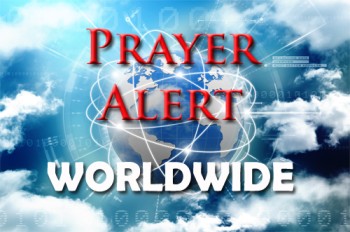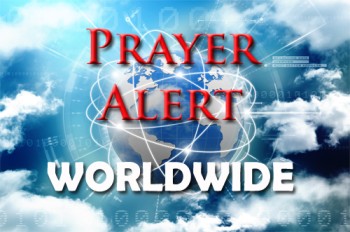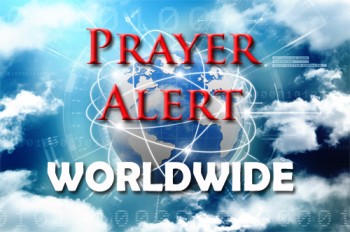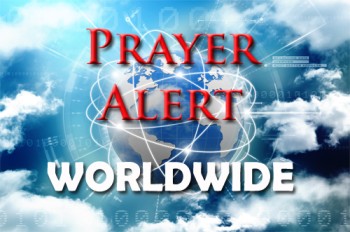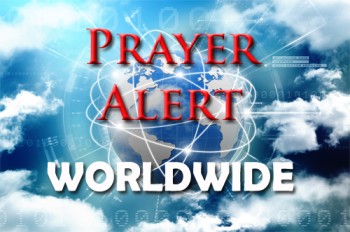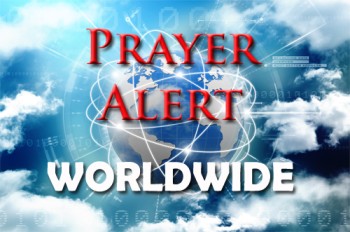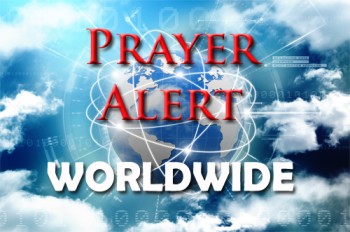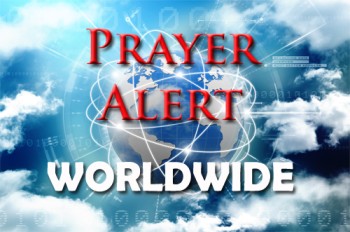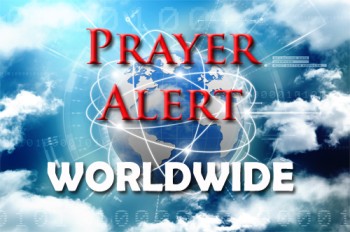Displaying items by tag: DRC
DRC: deadly landslide kills at least 22
A deadly landslide has struck eastern Democratic Republic of the Congo, killing at least 22 people and leaving dozens missing in a remote village in North Kivu. Triggered by hours of intense rainfall, the hillside collapsed in the early hours of the morning while residents were asleep, sweeping homes away and cutting the main road linking Goma with Walikale. The blocked route has severely hampered rescue efforts and delayed government assistance. Eastern Congo has endured decades of violence involving government forces and armed groups, including the Rwanda-backed M23. The disaster highlights the vulnerability of communities living in areas where the state’s presence is weak and insecurity is high. In a region already scarred by conflict, displacement and poverty, seasonal rains continue to claim lives, deepening the humanitarian crisis faced by countless families. See also
DRC: peacekeeping force decides to withdraw
The Southern African Development Community (SADC) has begun withdrawing its peacekeeping force from eastern Democratic Republic of Congo (DRC) through Rwanda. The troops, from South Africa, Malawi, and Tanzania are exiting Goma in North Kivu and heading to Tanzania for repatriation, with all personnel expected to leave by 30 May. The withdrawal follows heavy casualties, including at least seventeen soldiers killed during clashes with M23 rebels, who have since taken Goma and Bukavu. Rwanda, accused by the UN and the DRC of backing M23, denies any involvement, though the rebels reportedly receive support from 4,000 Rwandan troops. The DRC government has called for a nationwide military mobilisation as the rebels threaten to march on Kinshasa, over a thousand miles away. The SADC mission, deployed in 2023, aimed to stabilise the mineral-rich region but struggled amid the worsening crisis. With over seven million displaced, eastern Congo is one of the world's most severe humanitarian emergencies.
DRC: fighting between army and Rwandan-backed rebels
Fighting persists between the Congolese army and M23 rebels in Goma, in the east of the Democratic Republic of Congo (DRC), leaving control of the city uncertain. The M23, which according to the UN is supported by thousands of Rwandan soldiers, claims to hold the provincial capital, though Congolese authorities dispute this. Rebel patrols have been reported in western Goma, while Congolese forces are reportedly guarding the airport. With independent access to parts of the city restricted and communication infrastructure disrupted, reliable updates are scarce. The fighting has forced thousands of civilians to flee. The volatile region is rich in minerals that are critical to much of the world’s technology. Kenyan president William Ruto, describing the situation as ‘very complicated’, said that it could only be solved diplomatically: see
DRC: WHO declares public health emergency as mpox spreads
The World Health Organisation (WHO) has declared a Public Health Emergency of International Concern (PHEIC) due to a new variant of the mpox viral disease spreading across thirteen African countries, following an outbreak in the Democratic Republic of Congo (DRC). The variant, known as clade Ib, is more easily transmissible and has led to over 17,000 suspected cases and 517 deaths in Africa this year, marking a 160% increase from the previous year. WHO’s director-general emphasised the global threat, committing to coordinated efforts to prevent transmission and save lives. The PHEIC declaration facilitates accelerated research, funding, and international cooperation. Africa’s top public health body has also declared an mpox emergency, working with the EU and vaccine manufacturers to secure an initial 215,000 vaccine doses, with plans for up to ten million by 2025. Efforts include extensive media outreach to raise awareness, particularly using social media to target the young, who constitute 60% of the cases in the DRC.
Africa: USA may need to improve relationships due to shortage of minerals
The USA may need to reassess its relationships with African nations as it faces a potential shortage of critical minerals essential for weapon manufacturing. This comes as it and its allies provide arms to conflict zones like Ukraine and Israel. In both cases, these include advanced missile systems which rely on critical minerals found in Africa. These include cobalt, sourced from the Democratic Republic of Congo, antimony from South Africa, and graphite (found in many countries). A study group has warned that a shortage of these minerals could hinder military capability and national security, impacting the arms race with China. In its policy towards Africa, the US has shown renewed interest in the DRC and Zambia through the rebuilding of the Lobito Corridor, a rail and road network which will link the two countries to Angola and straight to the Atlantic Ocean.
South Africa: cost of peace-keeping force in DRC
South Africa's contingent of 2,900 soldiers deployed to the eastern part of the Democratic Republic of Congo (DRC) is expected to cost just over R2 billion (£850 million), as the Southern African Development Community (SADC) Mission takes on a year-long tour to help stabilise that troubled region. The SAMIDRC also includes soldiers from Malawi, Tanzania and the DRC itself. The deployment of this force follows its principle of collective self-defence and collective action, which states: ‘Any armed attack perpetrated against one of the state parties shall be considered a threat to regional peace and security, and shall be met with immediate collective action.’ President Cyril Ramaphosa has defended his deployment of the force as ‘South Africa's international obligation’ towards the SADC.
DRC: crucial elections complicated by technical problems
On 20 December, amid widespread delays and logistical complications, polling stations opened in the Democratic Republic of Congo (DRC). Because of the delays, it was decided to extend the voting for a second day. The election is a significant moment for the nation. Over 40 million are expected to vote, including Congolese nationals living in some other countries: they will elect not only the president, but also 484 national assembly members, 715 members of provincial assemblies, and 311 municipal council members - a total of more than 1,500, from a pool of over 100,000 candidates. Several opposition candidates have expressed serious concerns about the chaotic process and possible fraud. Félix Tshisekedi, the incumbent president, is seen as likely to be re-elected, given that the opposition has remained fractured. If re-elected, he has threatened to declare war on Rwanda: see The DRC has grappled with years of conflict and political instability, making this election a crucial step towards achieving stability and democracy.
DRC: UN peacekeepers agree to withdraw
After nearly two decades, the United Nations Stabilisation Mission in Congo (MONUSCO) has signed an agreement to withdraw its 15,000 peacekeepers from the Democratic Republic of Congo. The foreign minister and MONUSCO's head finalised the deal, marking the end of a collaboration that struggled to bring lasting peace to eastern Congo, a region plagued by a long-standing conflict involving numerous armed groups, some backed by neighbouring countries. With upcoming elections in December, the conflict has taken centre stage, prompting the incumbent president Félix Tshisekedi, to call for the UN peacekeepers' accelerated withdrawal; the government has cited ‘unsatisfactory results’ to justify this request. Tensions between the UN mission and the local population have often flared, resulting in deadly protests. The exact timing of the withdrawal has not yet been agreed.
Democratic Republic of Congo: IS-affiliated extremism
The Allied Democratic Force (ADF), which operates primarily out of the DRC, is a violent extremist group that is gaining power in Central Africa. The known IS affiliate is notorious for targeting Christians in its violent campaigns to establish an Islamic caliphate in the region. A widening recruitment network and an increase in funding overseas contributed to ADF’s bloodiest year yet. While IS lost much of its power and control in Syria and Iraq, its affiliate groups in Afghanistan, the Sahel region, and Central Africa grew stronger. The ADF was listed as one of the worst terrorist groups in 2022. Pray for an end to ADF-led violence in this region. Pray for God to protect Christians throughout the DRC. Pray also for the group’s funding and recruitment network to be cut off.
Africa: rivers of Christian blood
The 16 June murder of 45 Christian schoolchildren is the latest anti-Christian atrocity committed by ADF. They were hacked to death, shot, or burned alive. Others were abducted. ADF pledges loyalty to IS and has slaughtered hundreds of Christians in north-eastern DRC. Nigeria’s Middle Belt has seen over 1,500 Christians killed in the last 18 months. In May IS released a video of 20 Nigerian Christians being murdered. Islamic State Mozambique (ISM) have beheaded thousands of Christians on social media. ISM celebrates building its Islamic province ‘on heaps of Christian corpses and rivers of their blood’. A Middle East Media Research Institute report stated that IS and al-Qaeda, having been beaten back from Middle East strongholds, have found new pastures for genocide in Africa. They follow the same tactics of mass killings, execution-style beheadings, and burning churches, celebrated in slickly produced publications and social media campaigns designed to entice the next generation of bloodthirsty Islamist terrorists.
